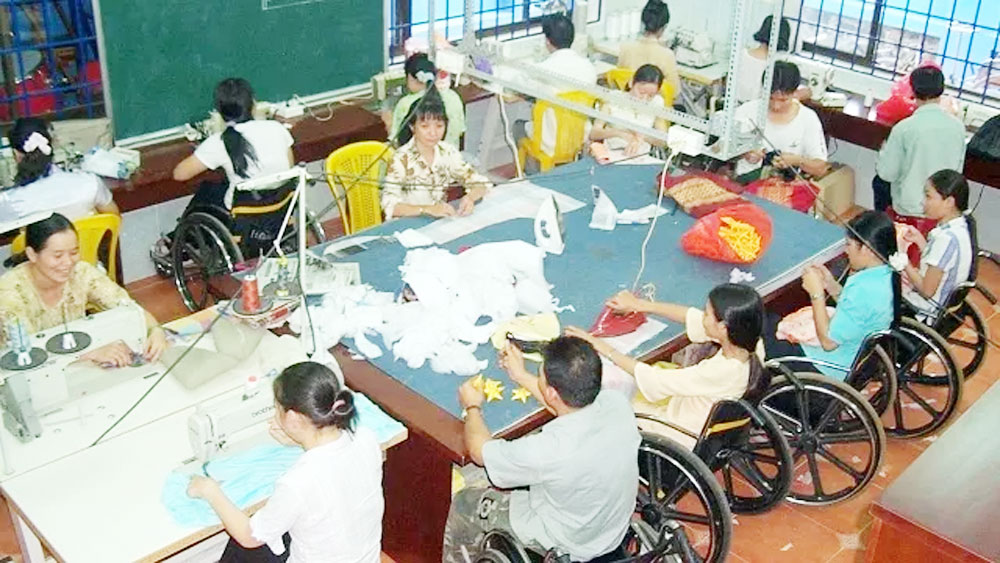Vietnam targets ensuring equal labour rights for people with disabilities
|
|
The convention provides that member states must adopt, modify or abolish existing laws, regulations and practices that contribute to inequality in the rights of workers with disabilities. It also sets out activities and policies at the national level to develop vocational rehabilitation and employment services for people with disabilities (PWDs).
 |
|
Vietnam aims at helping people with disabilities to be fully entitled to all human rights, including labour rights. |
Currently, in Vietnam, PWDs account for a significant proportion of the labour force. Statistics from the National Committee for PWDs showed that, by early 2018, there were about eight million PWDs aged five years and older, accounting for 7.8% of the population.
An ILO study showed that Vietnam lost about 3% of GDP due to not taking advantage of PWDs in the labour market. Not to mention, creating conditions for workers with disabilities is not to let anyone left behind in the development process. Businesses, individuals and the whole society will benefit from creating employment opportunities for workers with disabilities.
The country has developed a system of current legal documents, such as the 2010 Law on PWDs, the Law on Professional Education and Employment, the Construction Law, the Road Traffic Law, the Health Insurance Law and the Law on Occupational Safety and Hygiene, with important regulations relating to labour rehabilitation and offering vocational training, job introduction counseling and job creation, in addition to support from the State and the community for PWDs.
However, in addition to the achieved results, the support in job creation for PWDs faces multiple difficulties, while PWDs still have challenges in accessing preferential loans for vocational training or opening production and business establishments.
The proportion of PWDs that have jobs after being provided with vocational training is low and they mainly create jobs by themselves. Besides, although the provisions of the Law on PWDs require agencies, enterprises and organisations not to refuse to recruit qualified PWDs, employers are still not ready to admit PWDs.
The ratification of Convention 159 will be a new step in improving Vietnam's current legal framework to support PWDs, contributing to further improving the labour market policies and institutions towards being modern and consistent with international labour standards, thus ensuring the rights of disadvantaged groups in the labour market.
In addition, it is also crucial to analyse and assess the needs of vocational training and employment of each targeted group in order to deploy appropriate and effective support policies.
Source: NDO
 Bắc Ninh
Bắc Ninh














Reader's comments (0)